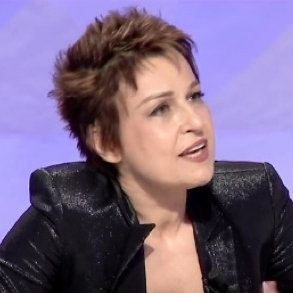Ms. Buda is a writer, journalist, and human rights activist.
A graduate of the prestigious “École Pratique des Hautes Études” (EPHE) in Paris, Ms. Buda worked as editor-in-chief for Radio France Internationale, RFI, where she was appointed the Head of Albanian Department from 2004-2010. She studied creative writing in the US and was awarded the 2011 RFI prize “Prime of Creation.”
Ms. Buda looks back at a long career in journalism. She has worked for UNESCO and the British Broadcasting Corporation (BBC). Her BBC reports from Paris were widely praised by the public. “Klara Buda, BBC Paris,” became a household name.
In June 1998, she initiated the petition “The fate of Kosovo common declaration on basic principles”, http://bit.ly/2DV6x8Y, calling upon the French government to address the ethnic cleansing by the Milosevic regime in Kosovo. Supported by important French intellectuals, this petition, had a big impact on the sensibilization of the French public opinion.
While serving as a department director for RFI, she held multiple positions as a lecturer in radio journalism and in political discourse for the Council of Europe. She led multiple media diagnostics missions in South East Europe and designed numerous training programs on media independence, ethical journalism, and political discourse. Her work on multi-ethnic broadcast services was recognized by the Director of the Council of Europe in 2004.
She’s the founder of the online Gazette http://klarabudapost.com/ to promote journalistic ethics and the Albanian Cultural Diplomacy, https://www.albanianculturaldiplomacy.org/, a non-profit organization to advance Albanian Culture and art.
In 2013, she was awarded the «Francophone Personality of the Year» by the International Organization of Francophonie for her work in facilitating cultural exchange.
Ms. Buda is of Albanian ethnicity and French nationality and lives between Paris and New York, where she serves as a senior consultant and lecturer in media and peace-building.
Ms. Buda earned a Master’s degree in Historical & Philological Sciences and Art History from “École Pratique des Hautes Études” (EPHE) in Paris.
Publications
Woman Whispering – Novel, MAPO Publishing, Tirana, 2017, ISBN 978-9928-213-13-6 http://bit.ly/2Avhrna « Set in Communist Albanian brutal regime, the novel provides a compelling insight into the regime’s production and reproduction of a new type of human being. It focuses on the oppressive system’s efforts to establish a new kind of society, run by fear. » M. Gueguen, Le Courrier Des Balkans, Paris, France, http://bit.ly/2BCsNpz
The Short Story of Kuteli – Essays, Ombra GVG Publishing, Tirana, Albania, Sept 2017 ISBN: 978-9928-06-185-0 http://bit.ly/2BBy2WH
Kosova Mon Amour – a collection of essays on Kosova War and Totalitarian Regime in Albania. Publishing Pema, Prishtinë, March 2017 ISBN 978-9951-72-42-4
Literary translation – They like to drink Raki in my village – Novel by Mitrush Kuteli, translated from Albanian to French. Éditions Fauves, Paris, 2016. ISBN: 979-10-302-0046-1 http://bit.ly/2jctg4C
Chloroform – Novel, Botimet Dudaj, Tirana, 2010, ISBN 978-99943-0-139-3
http://bit.ly/2psuYSJ « Chloroform, is marked by identity questions and exploration of the role of free individuals in totalitarian systems. Ms. Buda describes what she calls “island of inner freedom,” which varies from one individual to another but helps each of them survive, despite the dictatorship. » (S. Habilaj, Tirana Observer, 11. 2. 2010)



